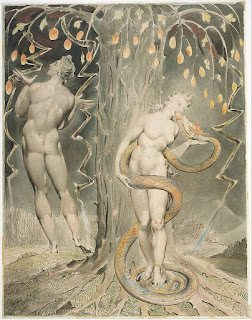I decided to read Paradise Lost (as a randomized big book list entry) because a professor friend of mine has to read this text for his dissertation and so I decided to jump in here and read along with him. A history professor friend of ours also decided to read it with us and so I decided that is random enough for me, and jumped in.
I went back to the audiobook but I took a different approach this time. I would listen to sections of it at a time, and then when I finished a book, 1 of 12, I would stop, read a short summary of it on Sparknotes or whatever, and make sure that I was tracking with the narrative. Then after I read the summary, I went back and actually read the text silently or I would play the audiobook version again with the text in front of me. I did this for the first 4 or 5 chapters until I felt like I was comfortable enough with the candence of the work. After that, I would listen to the audiobook and then I would read a summary then by the time I got to book 9, 10, 11, and 12 I was just listening to the audiobook because I was so engrossed in the story that I didn’t want to stop and slow down and reread.
I loved this text. Just like War and Peace, there is a part of me that doesn’t want to like this book because people are supposed to like these books but it is so worth the work to get deeply inside of this story. I have study Christian theology and the Bible as a text at the graduate level, and I know the content that he is describing quite well but the way that Milton talks about it is so unique and so well crafted that it is as if I am encountering these ideas anew. It is incredible. Also, the way that he shifts the locus of the action of the stories here is fascinating. Almost nothing happens as it is happening but is largely told in a way that is sort of recovering the narrative throughout the work. Most of what I have written here is about the text as a thing and not addressing the work itself because it is almost too much to contend with.
So much has been written about this text that it feels like an impossible task to address here, even the first story takes place just after the action happens, Satan and his crew are reeling from being kicked out of heaven. He assembles a force and they talk through next steps. There is some deeply fascinating stuff happening here. Then Satan decides to go off on his own and charge the gates of hell by himself. Then he has one of the strangest interactions in the history of literature with his ‘daughter’ Sin which is just a bit too much for me really. Sin and Death are guarding the gates of hell and they let Satan out. As soon as Satan gets out he encounters Chaos on his way to Earth suspended on a golden chain from heaven which is majestic image. As soon as Satan makes his way to Earth, God and the rest of the Trinity are aware of his actions, and God and the Son discuss what will have to happen now that Satan has taken this turn. It is in this moment that I am alive with questions and retracing all of these terrible ideas of predestination and free will that I have argued with seminarians about for hours and Milton spells it all out here in the most clean and earnest way that I am sort of mad that it took me this long to figure all of this out. Eve telling Adam about her dream where Satan first tempts her is a mystifying scene.
Adam working through what happened as he retells the incident to Michael is a very interesting moment where you can feel the love for Eve here in the tension of loving that which lets you down, choosing Eve over the will of God, being trapped by circumstance in a way that is all too human and no easy answer here is just fucking masterful in a way that feels modern and full of pathos that is sort of aggravating how beautifully written it is. Its almost too much for one document. Read this text.


Comments
Post a Comment